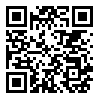Volume 1, Issue 3 (3-2025)
SELMJ 2025, 1(3): 77-98 |
Back to browse issues page
Download citation:
BibTeX | RIS | EndNote | Medlars | ProCite | Reference Manager | RefWorks
Send citation to:



BibTeX | RIS | EndNote | Medlars | ProCite | Reference Manager | RefWorks
Send citation to:
rahmanitabar Z, elyasi M. (2025). Digital leadership is a neglected point for university administrators. SELMJ. 1(3), 77-98.
URL: http://selmj.ir/article-1-57-en.html
URL: http://selmj.ir/article-1-57-en.html
Department of Educational Sciences, Islamic Azad University, Damavand Branch, Tehran, Iran
Abstract: (791 Views)
With the increasing penetration of new technologies, the role of digital skills in academic leadership has become more important than ever. The more digital skills university leaders have, the more capable the university is in adapting to the realities of the digital world. The main objective of this study is to identify and determine the factors that affect digital leadership in the academic environment. This study was conducted with a qualitative approach using thematic analysis. The research community included all scientific resources related to digital leadership between 2010 and 2020, and 46 articles and books were selected as the research sample using purposive sampling until theoretical saturation was reached. The resources in question were analyzed according to Sandlowski and Barroso's (2007) seven-step process. The findings include 141 basic themes, 12 organizing themes, and 3 overarching themes. The data meta-synthesis process also led to the identification of 12 key components in the field of digital leadership: personal skills, interpersonal skills, digital skills, organizational skills, participation, adaptability, sustainability, mission, emotional intelligence, strategic intelligence, and organizational intelligence.
Keywords: Digital Leadership, Digital Transformation, Academic Leadership, Educational Leadership, Thematic Analysis Method
Send email to the article author
| Rights and permissions | |
 |
This work is licensed under a Creative Commons Attribution-NonCommercial 4.0 International License. |





